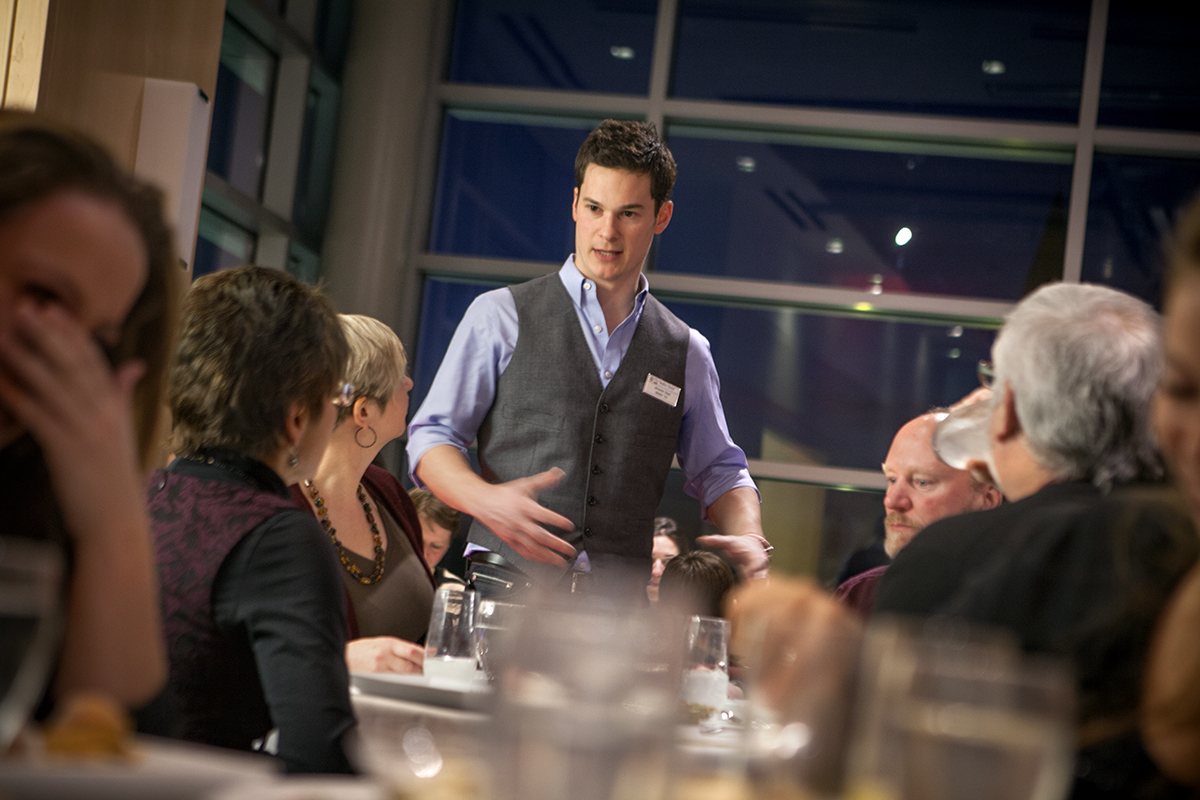Hotel Ezra Cornell delves into 'The New Normal' in hospitality
By Susan Kelley


Hotel Ezra Cornell will celebrate its 91st year by exploring the theme “The New Normal” in hospitality March 17-20.
The School of Hotel Administration’s (SHA) signature annual business conference will focus on the unprecedented change facing many sectors of the hospitality industry, from disruption in hotel real estate to the explosion of customer data and the evolution of consumer expectations of travel. More than 200 guests expected to attend.
“We are offering a diverse set of programming that will appeal to a broad audience base,” said Benjamin Pilosof ’16, Hotel Ezra Cornell (HEC) communications director. “We’re not just a hotel management program; our alumni and conference participants are in real estate and finance and marketing and entrepreneurship. So we are addressing issues of change across the board.”
The keynote speaker is Horst Schulze, chairman and chief executive officer of the ultra-luxury Capella Hotel Group, who will talk about “the new normal of luxury.” Prior to founding Capella, Schulze spent 13 years as president and chief operating officer of the $2 billion worldwide Ritz-Carlton Group. “He’s a big draw for our alumni,” Pilosof said.
All presentations at the conference are open to the public. They will include topics such as how cybersecurity is becoming a more widespread concern to how social media is influencing consumer decisions.
In the panel “Keeping Up with the New Consumer,” leaders of companies such as Airbnb, Expedia and Hilton Worldwide will describe the ways in which they stay on top of trends in how consumers research, buy and experience travel. They’ll give particular attention to how the industry can benefit from the ways in which e-commerce and the sharing economy have provided alternatives to traditional interactions with travel providers.
Lucida Plummer, vice president of diversity and inclusion for Wyndham Worldwide, and Victor Younger, director of diversity and inclusion at SHA, will host a talk on “The Evolution of Diversity,” discussing the future of workforce diversity as millennials become the dominating generation.
Panelists including Stephen Haggerty ’90 of Hyatt Hotels Corp. will speak on “Growth in the Face of Volatility: Preparing for Disruption in Hotel Real Estate.” They’ll cover real estate ownership and investment trends in light of the challenges the U.S. lodging industry is facing from geopolitical instability, stock market volatility, rising interest rates, brand consolidation and supply issues in some markets.
“The Hospitality #DATA Explosion” talk will cover “psychographic” targeting, or advertising, marketing and selling to consumers online using data collected about their lifestyle, habits, hobbies and values.
Executives from TINT, a company that helps more than 4,500 brands aggregate, curate and display multiple social media feeds, will talk about how the hospitality industry can leverage customer social content in groundbreaking ways, in the discussion “Bringing the Guest’s Social Experience to the Big Screen (…or to the Small One).”
Drew Nieporent ’77, founder of Tribeca Grill and Bâtard, which won Best New Restaurant in America at the 2015 James Beard Awards, will headline the panel discussion on “Trends in Food and Beverage: 2016 Edition.”
HEC will close with the Cornell Hospitality Business Plan Competition and the Entrepreneurial Student Showcase, which will feature such concepts as Maidbot, a company that uses robotics to clean hotel rooms, and Navo, an app that helps shoppers identify potential purchases in malls.
HEC is run by students: 16 board members, 150 managers and assistant directors, and more than 300 volunteers. Students plan and execute every aspect of the conference, from negotiating with vendors to developing recipes and menus, procuring all amenities and food, managing a $100,000 budget, creating all marketing materials, planning academic panels and inviting conference attendees.
“The experience is irreplaceable,” Pilosof said. “We cover the full spectrum of areas that you need to put on an event of this complexity. As undergraduate students, there’s no other opportunity to apply everything we’ve learned in the classroom in such a real setting. It’s a great way to practice these skills.”
Media Contact
Get Cornell news delivered right to your inbox.
Subscribe